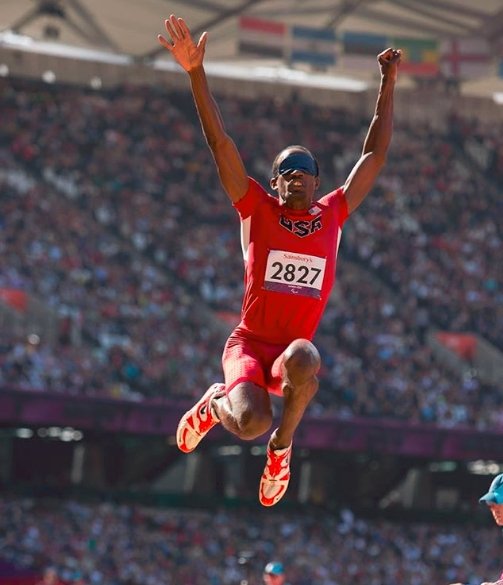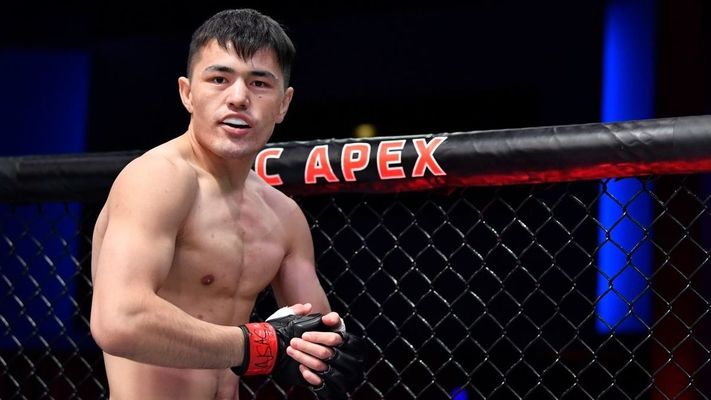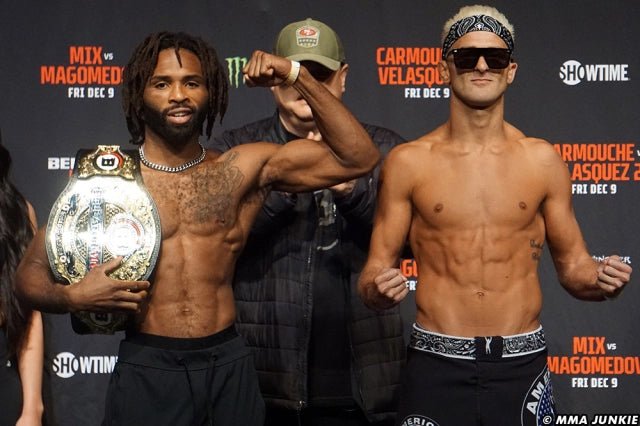Lex Gillette may have lost his eyesight, but once he got a taste of track and field, he never lost his vision.
Gillette is the current Paralympic world record holder in the long jump, a four-time Paralympic medalist, a three-time long jump world champion, and an 18-time national champion. He is the only totally blind athlete to ever eclipse the 22-foot barrier in the long jump.
At the age of eight, Gillette's sight was slowly fading due to recurring retina detachments. Ten surgeries later, things weren't getting any better and his mother was given the task of telling her young child that he would likely never see again.
Though this was tough news for Gillette, he never let it get in the way of accomplishing great things. Whether it was adapting to social life, sports, and everything in between, he has made the best out of every situation.
We sat with Lex and heard more about his life, how he got into track and field, and his future plans.
KC: How long did it take you to get used to being blind? Were there certain things that were harder to adjust to?
LG: In the beginning, I learned how to read brail and use a cane but those didn’t take too long. From a social standpoint, it took longer. Being able to interact with others and explaining my blindness to people was a challenge. I’m at a point now where I am very comfortable with myself. I use my life to educate others on disabilities.
KC: Were you athletic before you lost your site? How long did it take you to get into being active afterward?
LG: Before I lost my sight, I was very active. I loved playing things like dodgeball, kickball, and basketball out in the yard. I also played organized baseball when I was younger. Once I lost my sight, it was a blessing that I was already active because it was a matter of me becoming super comfortable with moving around. It didn’t happen right away but my mom found resources for me and I eventually did get the confidence to go back out there and play.
We found different ways to adapt the sports I loved. In high school, I wrestled my freshman and sophomore years. I learned about an adaptive form of baseball called beep ball and played that for a while before I was introduced to track and field. When I learned about the events in track and field - that’s when things broke out for me. I started training for the (Paralympic) games and went to my first one after high school.
KC: When did you realize you were more athletically gifted than most?
LG: I would say I really knew in my senior year of high school. My mom kept me in public school to be around others. I was the only blind kid on my track team and likely the only blind kid in our conference. Once I was beating other kids that could see, I realized this was something I could be good at. My coach always kept me motivated and inspired. He told me about possibly going to the (Paralympic) games and breaking records.
KC: Did you ever envision yourself representing the US in the Paralympics? At what point did that become a goal for you?
LG: I went to a sports camp in Kalamazoo, Michigan during my sophomore year of high school. We learned all of the Paralympic events and I got the chance to try those events at camp. At the end of camp, there was a small competition with those events. I wouldn’t say I was actively thinking that’s what I wanted to do, but when I got home, the flame was slowly being lit. It was in the back of my head but wasn’t my total focus. My senior year meet, where I finished 7th, qualified me for my first Paralympics meet. After that, I realized this could become a reality.
KC: You’ve competed in the last four Paralympics, do you have plans to make it a fifth in 2020?
LG: Absolutely, that’s my goal. The winter Paralympics just ended so we’re next on the slot. I’ve been training and competing. We have a competition coming up here soon in Germany and then we have the world championship in Dubai near the end of the year in 2019. That will be the last competition before the Paralympics, so it’ll be the last time I see my competition before hopefully seeing them again in Tokyo.
KC: I see that you’re a musician as well. How long have you been playing music?
LG: That’s been a thing for me for about 11 or 12 years. I did it in elementary school but was embarrassed by it. I hated being put on the spot with my singing. When I was in college, I had entered a contest that was a mini-scale version of American Idol. I challenged myself and I liked it – it was fun. I’ve grown to the point where I want to unleash all of my talents to the world and not short myself. I didn’t win that competition but made it to the second to last round. I realized that I had real talent. I made a song before the London Paralympics to raise money for my mother's travel to watch me compete. At that time, she had never seen me compete in person, so with donations from our church, shirts sales, and the recording of the song, we were able to raise the money for her to see us compete. I plan on making an EP or a full-length album in my offseason.
KC: What does Kill the Quit mean to you?
LG: The first thing that comes to mind is strangling any notion, idea, or feeling of giving up – it can’t happen. You have to defeat that notion. Wherever I’m speaking, I tell people that it’s okay to make mistakes or fail, but it’s not okay to give up. You can try, try, try, but when you fall down you get back up. We don’t want any of that mindset to enter our lives or the lives of those around us.
Do you know someone that you think would be a good addition to the Kill Cliff Warriors? Email connor@killcliff.com and let him know!









